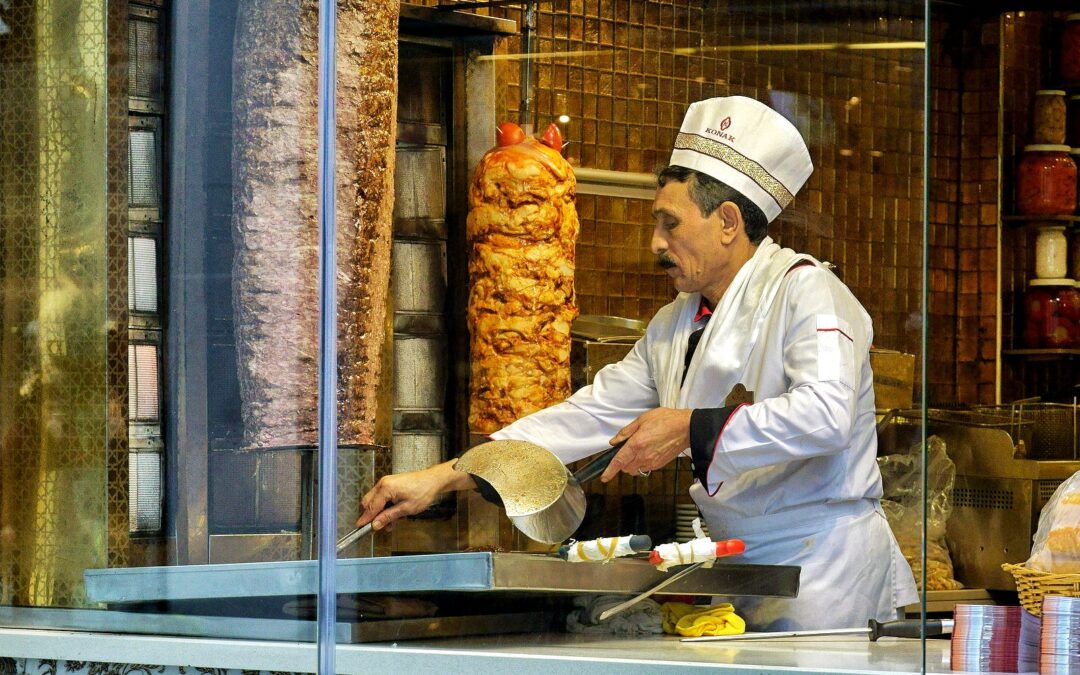A dispute has broken out after the arrest in Poland of a German-Turkish businessman known as the “Kebab King”. Employees at his companies have appealed to the Polish government for his release.
The German citizen of Turkish origin, named only as Ömer A. under Polish law, is the owner of two kebab companies based in western Poland, which employ around 600 people and export food across the world, reports Wirtualna Polska.
Last month, he was detained by the Polish authorities and accused of having run an organised crime group for nearly ten years, as well as of money laundering and tax evasion.
However, Ömer A.’s companies say the reports are “unfounded”. His lawyer and employees also claim the arrest could result in closure of the businesses and job losses. Almost 600 workers have sent a letter to the prime minister, Mateusz Morawiecki, and justice minister, Zbigniew Ziobro, appealing for Ömer A.’s release.
"Blisko 600 #pracownik'ów..podpisało się pod petycją do premiera Mateusza @MorawieckiM i ministra sprawiedliwości Zbigniewa @ZiobroPL. Apelują o zwolnienie z #areszt'u właściciela #Ömer'a A. i odblokowanie kont jego firm."https://t.co/rsB0LxclCT
— Andrzej Nowak (@AndrzejNowak) February 6, 2021
The two companies owned by the businessman are Dünya Döner Kebab in the town of Zduny, which specialises in the production of halal kebabs from chicken, turkey and beef; and the Euro Döner plant in Kobierno, which produces gyros. Most of their output is exported to European and Islamic countries.
On 12 January, officers from the Internal Security Agency (ABW) entered the plants, acting under the orders of the Poznań branch of the Department for Organised Crime and Corruption of the National Public Prosecutor’s Office, reports TVP.
During the searches, cash and property worth nearly 15 million zloty (€3.4 million) was secured, including €25,000 found in Ömer A’s apartment.
Ömer A. was subsequently arrested, along with five other Poles and Turks, and has been detained for three months, according to TVP. Prosecutors accuse him of running an organised crime group which has been active since 2012, as well as underreporting the value of exported goods. They say further arrests are possible.
Zaniżali wartość sprzedawanego mięsa#wieszwięcej https://t.co/nrOAgZBNCW
— tvp.info 🇵🇱 (@tvp_info) January 19, 2021
Ömer A. denies wrongdoing. He told investigators that the money discovered in connection with the case was linked to the sale of kebab products paid for in cash.
As part of police measures to secure property related to the investigation, both companies’ bank accounts were blocked, reports Wirtualna Polska. However, employees fear this will cause the businesses to collapse, leaving jobs under threat.
In a letter to Morawiecki and Ziobro, employees said the situation was “dramatic” and could “lead to consequences that interfere very deeply with the principle of economic freedom”.
“Charges have been brought against individual persons, and this cannot generate negative consequences for the companies and our employees, that is, people not related in any way to these persons,” they added.
Concerns have also been raised by Ömer A’s defence lawyer. “Only the wisdom of the court or the prosecutor’s office can protect these families from further tragedies,” he said, quoted by Wirtualna Polska.
In two statements posted on social media last month after the raids, Dünya Döner Kebab said that it “continues to produce, sell and operate at full speed and with bigger targets everyday”. The company announced that it would be taking legal action in response to “unfounded” claims against it.
The firm also attracted negative publicity in 2019, when salmonella was discovered in meat it had exported to Slovenia, reported RMF FM at the time. Turkish newspaper BirGün also reported last month that Ömer A. relocated his business from Germany to Poland a decade ago after building up a large tax debt.
Main image credit: Miwok/Flickr (under CC BY-NC-ND 2.0)

Juliette Bretan is a freelance journalist covering Polish and Eastern European current affairs and culture. Her work has featured on the BBC World Service, and in CityMetric, The Independent, Ozy, New Eastern Europe and Culture.pl.




















